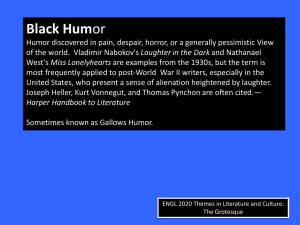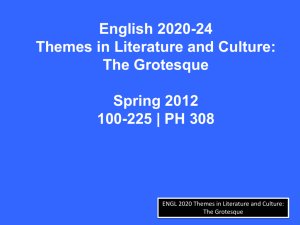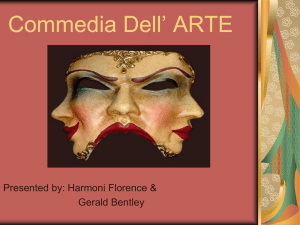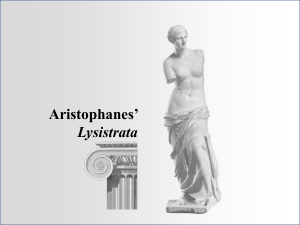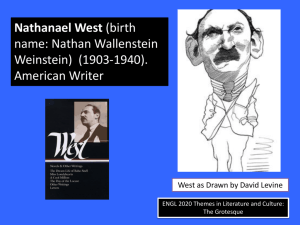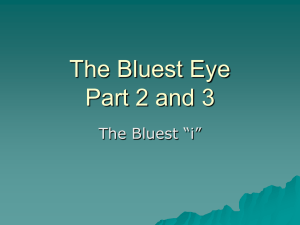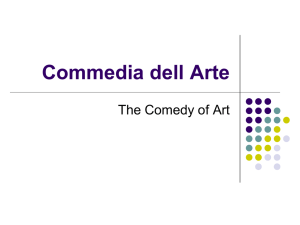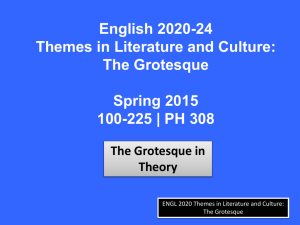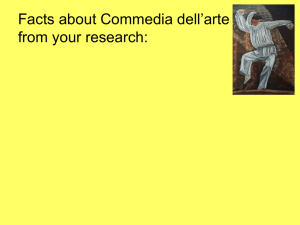Lysistrata & Commedia dell`arte
advertisement
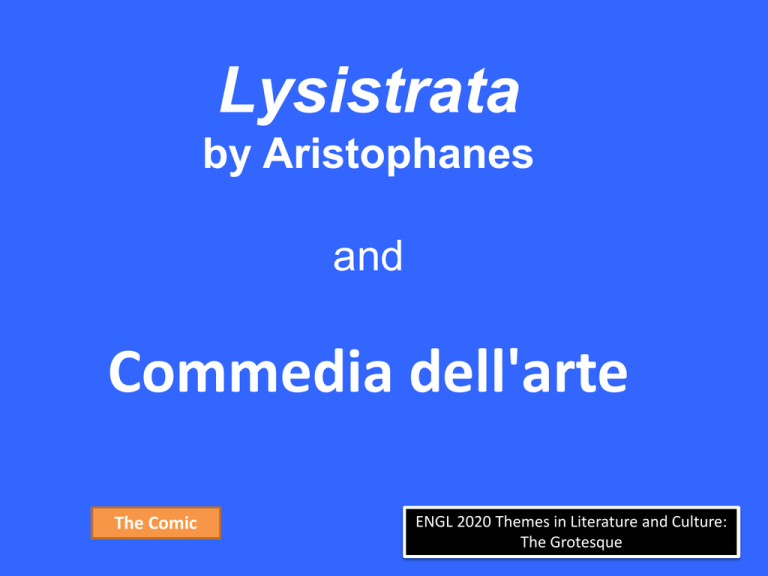
Lysistrata by Aristophanes and Commedia dell'arte The Comic ENGL 2020 Themes in Literature and Culture: The Grotesque The Comic Lysistrata by Aristophanes ENGL 2020 Themes in Literature and Culture: The Grotesque The Comic Lysistrata by Aristophanes ENGL 2020 Themes in Literature and Culture: The Grotesque Aristophanes (446-386 B.C.) The Acharnians 425 BC The Knights 424 BC The Clouds 423 BC The Wasps 422 BC Peace 421 BC The Birds 414 BC Lysistrata 411BC The Frogs 405 BC The Comic ENGL 2020 Themes in Literature and Culture: The Grotesque Lysistrata The Comic “Lysistrata (UK: /laɪˈsɪstrətə/, US: /ˌlɪsɨˈstrɑːtə/; Attic Greek: Λυσιστράτη "Army-disbander") is one of eleven surviving plays written by Aristophanes. Originally performed in classical Athens in 411 BC, it is a comic account of one woman's extraordinary mission to end The Peloponnesian War. Lysistrata persuades the women of Greece to withhold sexual gratification from their husbands and lovers as a means of forcing the men to negotiate peace—a strategy that, consequently, inflames the battle between the sexes. The play is notable for being an early exposé of sexual politics in a male-dominated society.” [from Wikipedia] ENGL 2020 Themes in Literature and Culture: The Grotesque Lysistrata The Comic ENGL 2020 Themes in Literature and Culture: The Grotesque Go here to find see Beardsley’s Lysistrata illustrations. X-Rated. Adults only. You have been warned. Commedia dell'arte ENGL 2020 Themes in Literature and Culture: The Grotesque Commedia dell'arte Commedia dell’arte: a type of comedy developed in 16th century Italy, whence it spread to the rest of Europe. None of the theories as to its origin is entirely satisfactory. The essential characteristic of the type is that it was based on a plot (scenario) outlined in advance, but the dialogue was improved during performance. For this reason the emphasis was on complicated and absurd intrigues, and the characters were merely a group of stock types: the silly old man, the braggart soldier, the pedant, the lover, the various types of cunning servants, etc. It ENGL 2020 Themes in Literature and Culture: The Grotesque Commedia dell'arte seems likely that each actor in a troupe regularly played the same character in all the different plots. The actors wore appropriate masks, and thus the audience immediately placed each character in his proper type. Since a play is a literary work by virtue of its text, it is not, strictly speaking, a literary form. It did, however, exert a good deal of influence on literary comedy, especially in 17th-Century France. —The Reader’s Companion to World Literature ENGL 2020 Themes in Literature and Culture: The Grotesque ENGL 2020 Themes in Literature and Culture: The Grotesque ENGL 2020 Themes in Literature and Culture: The Grotesque ENGL 2020 Themes in Literature and Culture: The Grotesque ENGL 2020 Themes in Literture and Culture: The Grotesque ENGL 2020 Themes in Literature and Culture: The Grotesque Commedia dell'arte Commedia dell’arte on the Grotesque Blog ENGL 2020 Themes in Literature and Culture: The Grotesque
